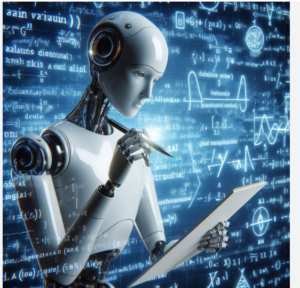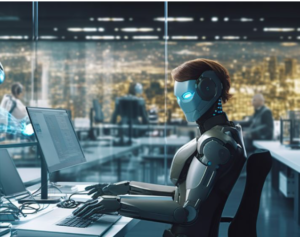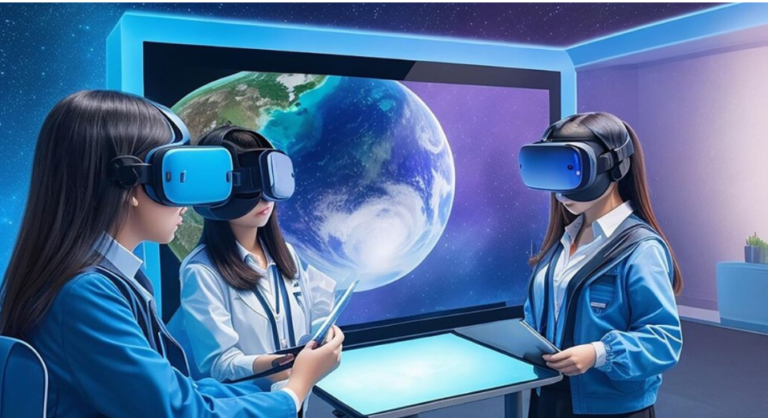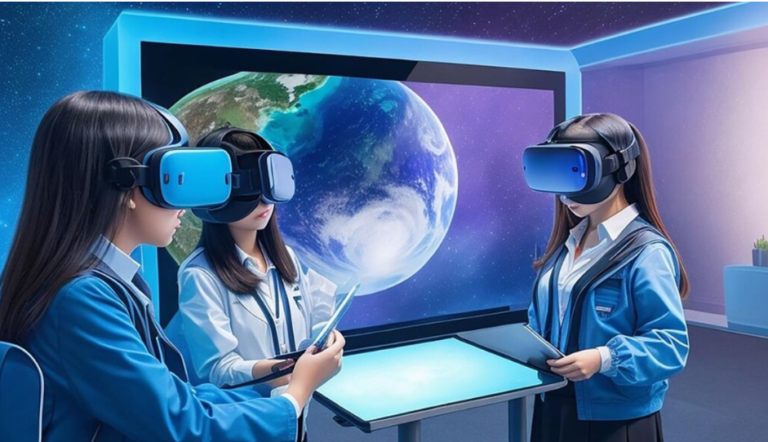The Impact of AI in modern Job Market:
Artificial intelligence (AI) is transforming industries as organizations leverage the latest technologies to drive efficiencies and make smarter data-driven decisions. While there are concerns that AI will replace workers, the reality is more nuanced. Rather than replacing jobs, AI in modern job market is reshaping this industry by creating new roles and enabling workers in existing roles to work more strategically.
Deciphering Growth of AI in Modern Job Market
The term “artificial intelligence” was first coined in 1956, and since then, the technology has evolved significantly. In recent years, AI adoption has skyrocketed, with milestones like the launch of ChatGPT-3.5 in late 2022. Businesses recognize the benefits of AI, and research estimates that generative AI will grow into a $1.3 trillion market by 2032, compared to $40 million in 2022.
Key Insights on Hiring and AI in Modern Job Market

As more companies embrace AI, recruiting and talent-acquisition teams seek experts who can incorporate AI into their systems and workflows. The demand for professionals with AI expertise has surged. Interestingly, while some fear job cuts due to AI, data from the Upwork Research Institute shows a promising trend: 49% of hiring managers plan to hire more independent talent and 49% intend to hire more full-time employees because of generative AI.
Jobs Augmented and Created by AI
AI not only automates tasks but also creates new opportunities. Here are some ways which shows the impacts of AI in modern job market.
-
New Roles:
AI introduces job categories that didn’t exist before. Think of AI engineers, data scientists, and machine learning specialists.
-
Enhanced Existing Jobs:
AI augments existing roles by automating repetitive tasks, allowing workers to focus on higher-value work.
-
Human Oversight and Maintenance:
AI technology requires human oversight, maintenance, and development. Professionals skilled in AI, machine learning, and data analysis are in high demand.
Specific Roles of AI in Modern Job Market
-
Artificial Intelligence (AI) Engineer:
AI engineers develop applications and systems using AI and machine learning techniques. They focus on creating tools, systems, and processes that apply AI to real-world problems. AI engineers can help organizations cut costs, increase productivity, and make informed business recommendations. Average salary: $113,000.
-
Machine Learning Engineer:
Machine learning engineers research, build, and design the AI responsible for machine learning. They maintain and improve existing AI systems, collaborate with data science teams, run experiments, perform statistical analyses, and develop machine learning systems. Average salary: $123,000.
-
Data Engineer:
Data engineers build systems that collect, manage, and convert raw data into usable information. They make data accessible for data scientists, business analysts, and other professionals to interpret. Data engineering has applications in nearly every industry. Average salary: $104,000.
-
Robotics Engineer:
Robotics engineers develop robotic applications for various industries, including automotive, manufacturing, defense, and medicine. They work on designing and implementing robotic systems. Average salary varies based on experience and industry.
Strategies to Use AI in Modern Job Market

-
AI-Powered Resume Optimization:
Use AI resume builders to create compelling resumes. These tools analyze job descriptions, suggest relevant keywords, and tailor your resume to match specific roles.
Example: Resume Genius and Rezi are popular AI resume builders.
-
AI-Driven Job Matching:
Instead of manually searching through countless job postings, AI algorithms recommend the best-matching jobs based on your profile and job descriptions.
Example: AI tools like Vervoe and other talent assessment platforms.
-
Cover Letter Generation:
Personalized cover letters improve your chances. AI tools can craft cover letters seamlessly based on your profile and job requirements.
Example: Some AI platforms offer cover letter generation features.
-
Skill Assessment with AI:
AI-based skill assessments evaluate your capabilities. These can include exam-style questionnaires, interactive simulations, or chatbot discussions.
Example: Companies like Impress.ai provide AI-driven skill assessments.
-
Career Advisors and Chatbots:
Virtual chatbots powered by AI can offer guidance on resume writing, interview preparation, and career path suggestions.
Example: Some platforms integrate chatbots for personalized advice.
Conclusion
In conclusion, AI in modern job market has revolutionized the world . While there are concerns about job displacement, professionals recognize that leveraging AI can propel their careers forward. Millennials and Gen Z, being tech-savvy, drive conversations about AI. Executives and engineers actively discuss its impact, with the demand for AI skills growing globally.










+ There are no comments
Add yours